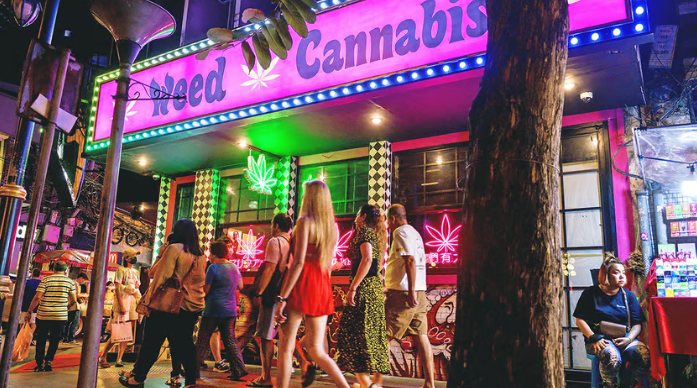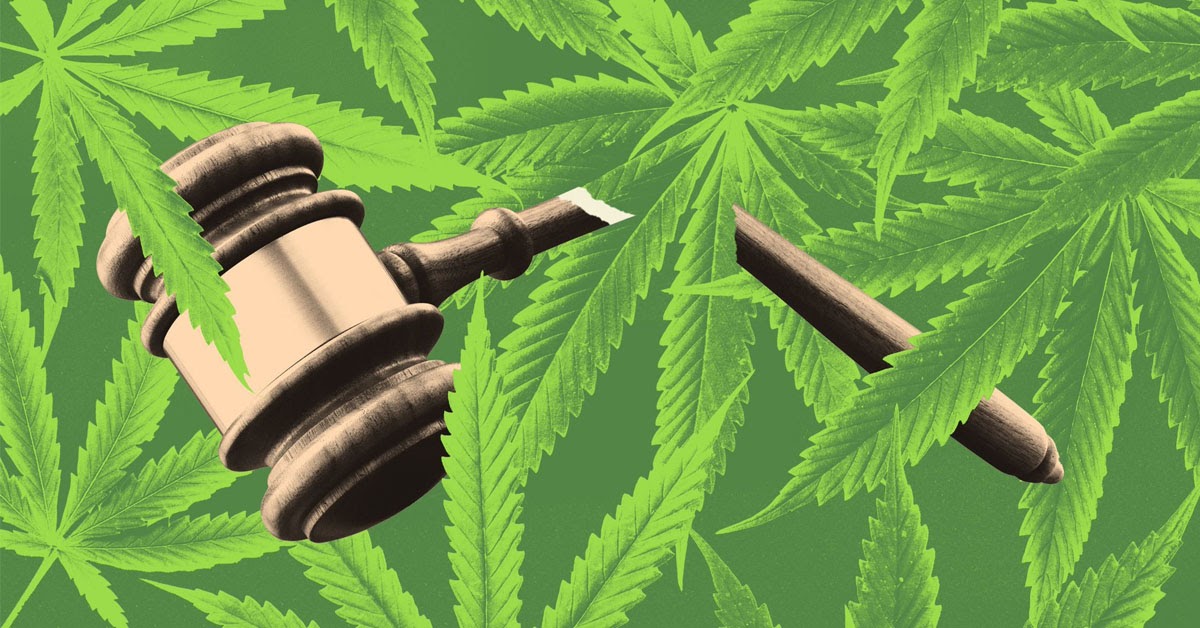Thailand's Cannabis Industry: A Rising Power Amidst Legal Uncertainties
As the first South-East Asian nation to decriminalise cannabis, Thailand has seen a significant boom in its weed industry, with an estimated 12,000 cannabis stores opening nationwide1. This article explores the current state of Thailand's cannabis market, the challenges it faces, and potential future scenarios.
1. The Rise of Thailand's Cannabis Industry
1.1 Decriminalisation and Market Growth
Thailand became a pioneer in South-East Asia when it decriminalised cannabis in June 20222. The move has led to an immediate boom in the country's weed industry, with an estimated 12,000 cannabis stores sprouting up nationwide3.
According to data, over a million people have registered to grow weed, and tourists in increasing numbers are visiting the country to consume it12. The industry had annual revenues of $800m by the end of 2022, a figure that is forecast to grow 12-fold by 203012.
1.2 Tourist Attraction and Local Consumption
In popular tourist districts such as Sukhumvit in Bangkok, the availability of cannabis has added to the array of attractions for visitors2. From cafes offering "happy meals" to dispensaries selling joints, tourists are spoilt for choice2.
Despite initial intentions for cannabis purchases to be for medical use, the market has seen a rise in recreational consumption23. This trend is fuelled by the legal vacuum following the decriminalisation, which allowed businesses to take advantage45.
2. Challenges Facing the Industry
2.1 Legal and Regulatory Ambiguity
While the decriminalisation of cannabis has led to a booming industry, it has also resulted in a legal grey area3. A promised bill to set out the rules failed to get through parliament, leaving the market in a state of regulatory limbo5.
Moreover, despite the decriminalisation, cannabis purchases are technically meant to be for medical use and limited to products containing less than 0.2% of high-inducing tetrahydrocannabinol (THC)2. However, shops openly advertise and sell more potent products2.
2.2 Oversupply and Price Drop
Oversupply and the influx of illegal imports have caused a significant drop in retail cannabis prices3. This, coupled with the summer low season for tourism, has led to some dispensaries folding3. There is a concern that many firms are illegally importing cheap weed, causing a decline in prices2.
3. Political Uncertainties and Their Impact
3.1 Political Opposition to Cannabis
The issue of cannabis legalisation is contentious among Thai politicians2. Several parties, including Pheu Thai and the election-winning Move Forward party, have vowed to ban or restrict cannabis use26.
Pheu Thai, a party that had led a war against drugs during a former stint in power, has formed a governing coalition2. However, it remains unclear whether the new prime minister, Srettha Thavisin, will follow through on restricting cannabis use2.
3.2 Proposal to Reclassify Cannabis
The Move Forward party has proposed to reclassify cannabis as a narcotic6. This move has caused panic among cannabis business owners, who argue that reclassifying cannabis as a narcotic would violate the rights of the people6.
Despite the party's promise that legal investors will be protected, the proposal has stirred consternation in the pro-cannabis lobby6.
4. Future of Thailand's Cannabis Industry
4.1 Potential Impact of Regulation
The future of Thailand's cannabis industry is uncertain. However, cannabis industry experts believe that incoming regulations will most likely give investors more clarity3. These rules could raise the bar to market entry, potentially benefiting businesses with the best domestic supply chains3.
4.2 Long-Term Prospects
Despite the challenges, the long-term prospects for the Thai cannabis industry remain positive3. Entrepreneurs believe prices will stabilise once there is regulatory clarity3.
Additionally, some businesses are focusing on CBD, a cannabis extract that doesn't get users high but is typically advertised as a therapeutic cure-all3.
4.3 Investor Interest
Investors from across the world, including the United States, Europe, Australia, Russia, and Singapore, have shown interest in Thailand's cannabis market36. They are investing in high-tech indoor cannabis farms, anticipating a rise in demand for high-quality, domestically grown weed3.
5. Conclusion
Thailand's cannabis industry is at a crossroads, with legal uncertainties posing a significant challenge. The direction the new government takes on cannabis regulation will undoubtedly shape the future of the industry. Despite the current challenges, there is optimism that the industry will continue to grow and mature.





